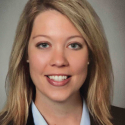After a hiatus from in-person gatherings during the height of the pandemic, ACR and ARP members once again gathered in Washington, D.C., for the ACR’s annual Advocacy 101 program, held as part of the ACR’s Advocacy Leadership Conference May 10–12. This program for rheumatology fellows and interprofessional team members gives members the opportunity to better understand how government policies affect the practice of rheumatology and how they can get involved in advocating for the specialty and patients, while giving them the chance to put what they’ve learned into practice immediately.
Event organizer Dan Redinger, ACR Director of Political Affairs & Engagement, describes the meeting as a mix of high-level education on policy issues in rheumatology, easy-to-use advocacy tools and a venue to put both into real-world practice. Each year, he says, attendees are surprised by the large role government plays in shaping healthcare rules and practices, such as utilization management approaches like prior authorization and step therapy, allocation of residency slots to rheumatology and healthcare provider reimbursement. Thus, the program emphasizes how important it is for rheumatology providers to advocate for themselves and their patients, he says.
“In Congress and statehouses across the country, rules affecting the treatment of care are being discussed, and it’s critical that we have a seat at the table in those discussions,” he says.

Dr. Alexander
The half-day Advocacy 101 program for rheumatology fellows and ARP members was led by Amanda Alexander, MD, assistant professor of rheumatology, University of Alabama Birmingham. She opened with introductory remarks before being joined by other ACR member volunteers and staff to discuss:
- Patient access to care;
- Barriers to access and affordable treatments;
- Role of state government and local involvement;
- Working with payers and insurance companies to address issues; and
- ACR advocacy tools and resources.
Throughout the program, attendees were able to break out into small groups to discuss the types of stories that resonate with policymakers, as well as practice advocating for themselves. Following Advocacy 101, attendees were able to join other ACR staff and volunteer leaders at the Advocacy Leadership Conference (ALC) for additional training and Capitol Hill visits as part of the ACR’s annual fly-in. This year, the ALC focused on physician shortages and the harm of the copay accumulator program.
Many rheumatologists feel the effects of workforce shortages in the field and see the need to increase residency and fellowship slots, especially in specialties such as rheumatology, Dr. Alexander said. “We have an abundance of applicants for rheumatology, and legislation is needed to help increase the number of slots funded by Medicare,” she said, adding that caps on the number of Medicare-funded residency slots at teaching hospitals imposed in 1997 under the Balanced Budget Act largely remain in place.
The copay accumulator program hurts patient access to treatment. The program, created by insurance companies who deemed copay assistance cards given to patients by manufacturers as a gift or grant, basically created a loophole that lets insurance companies use the copay assistance card to help pay for their portion of a medication. “This means that the patient is being asked to pay more,” Dr. Alexander said.
The ACR is actively advocating for two bills currently before Congress that address these two issues:
- The Resident Physician Shortage Reduction Act (H.R. 2256/S. 834) would increase training spots by 14,000 over the next seven years, with a specific mandate requiring that at least 50% of the additional spots added yearly would be directed to specialty programs like rheumatology;
- The Help Ensure Lower Patient (HELP) Copays Act (H.R. 5801) would mandate that insurers count the value of copay assistance toward the cost-sharing requirements of a patient’s plan.
The day after the ALC, attendees took part in a mix of in-person and virtual meetings with their members of Congress to share their stories and advocate for the two bills with the hope to gain a broader coalition of bipartisan support.
Attendees Laud Program

Dr. Hille
Chad Hille, MD, a rheumatology fellow at Ochsner Health, La., who attended this year’s program came away with a new sense of the importance of both advocacy and participation in it. “This was my first time going to an advocacy conference like this,” he said, noting that it was particularly great at providing a primer on how advocacy works. “All in all, I thought this was a very rewarding experience, and I am definitely planning on doing more in the future.”
Attendee Julie Campbell, MD, a pediatric rheumatology fellow at Seattle Children’s Hospital, commented on how much she learned about issues such as the copay accumulator program. “The names of these programs are often very vague and seem beneficial, but they offer no benefit to the patient whatsoever,” she said. “I suspect many other rheumatologists are unaware of this as I was—and certainly many patients must be.”

Dr. Campbell
Going forward, she hopes to use what she learned by staying involved with the ACR’s advocacy efforts. “Personally, I will also make sure [to tell] any patient I suggest [look into] a prescription drug coupon program to check with their insurance first to see if they have a copay accumulator program that might lead to a large surprise bill,” she said.
Everyday Expertise
For rheumatologists who may feel they aren’t informed enough to engage in advocacy, Mr. Redinger points to an additional function of the meeting—giving attendees the confidence to engage in advocacy by emphasizing the value of their expertise on rheumatology issues based on their everyday experiences of practicing in the field.
“In the past, Advocacy 101 attendees have become our most involved advocates when it comes to sending messages to their lawmakers, donating to RheumPAC and attending future fly-ins,” he said. “We hope that remains the case for this year’s group going forward.”
Mary Beth Nierengarten is a freelance medical journalist based in Minneapolis.


